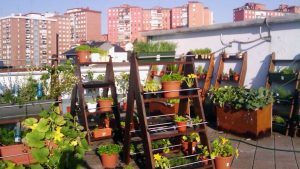A recent study highlights how urban and regional planning can improve food production and distribution, promoting food security and combating inflation affecting Brazilian families. The research, carried out in Curitiba and its Metropolitan Region, emphasizes the potential for municipalities to adopt more sustainable and healthy food systems through appropriate public policies.
The study, conducted by Instituto Escolhas in collaboration with the Curitiba Institute of Urban Planning and Research (IPPUC) and the Municipal Secretariat of Food Security and Nutrition, analyzed food production, transportation, commercialization, and access in the region. The results show that in 2022, enough food was produced to supply 3.5 million people, almost the entire local population. Additionally, one-third of the products sold at Ceasa Curitiba come from the region, demonstrating the potential to structure short distribution chains.
Closer food production to consumers has multiple benefits: it reduces waste, decreases CO2 emissions, and stimulates local employment. Curitiba is already positioning itself as a reference in promoting local production, with 190 urban gardens benefiting over 39,000 people. However, the city has 1,506 hectares of unused land that could be allocated for the expansion of sustainable agriculture.
Jaqueline Ferreira, Research Director at Instituto Escolhas, emphasizes that food production in metropolises should be a priority in public management. “The majority of Brazilians live in cities. Investing in local production helps address food inflation, food insecurity, and the climate crisis,” she says.

Challenges of urban farming
Despite progress, the study also reveals challenges. The cultivated area of beans decreased by 35%, while soybean cultivation increased by 161% between 2012 and 2022. Furthermore, the number of family farming establishments decreased by 25%, and producers are aging.
The research emphasizes the need for public policies that strengthen urban agriculture and improve access to healthy food in vulnerable areas. Promoting agroecological practices and utilizing idle lands are recommended to expand local production. Curitiba and its metropolitan region can serve as an example for other cities, integrating urban planning with food security and sustainable development strategies.

Why focus on beans?
Beans are seeds from legume plants, consumed as food, and are part of the diet of many cultures, especially in Mexico. According to experts, bean cultivation brings various environmental benefits because it improves soil quality, water, and climate, not to mention that they are a protein source with low environmental impact.
Among its benefits are:
Improving soil quality
- They fix nitrogen from the air, which the plant uses as fertilizer and then returns to the soil
- They provide organic matter, minerals, and soluble nutrients
- They increase soil biodiversity with beneficial fungi, bacteria, and actinomycetes
Improving water
- They consume less water than other crops
Improving climate
- They convert atmospheric nitrogen and fix it in the soil, benefiting the climate
Low environmental impact
- They are a protein source with low environmental impact, both in carbon emissions and water usage
- They can be a good substitute for animal proteins, which have a significant environmental impact
- They are a solution to problems like malnutrition, as they are nutritious and affordable
Source: Instituto Escolhas.
Do you already know our YouTube channel? Subscribe!

